10 Breathing Exercises That Help You Sleep Faster and Reduce Stress Naturally 😴🧘♂️
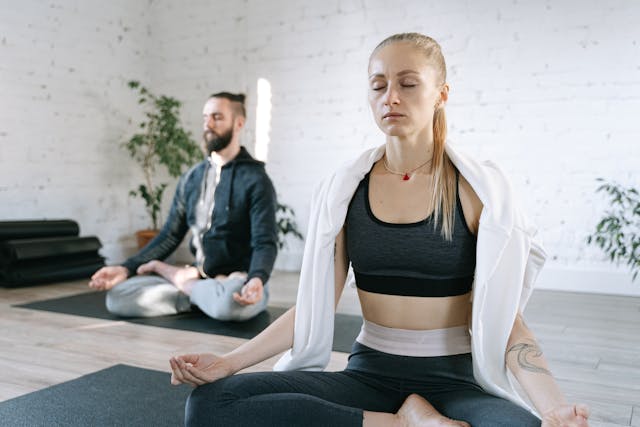
Struggling to fall asleep at night? You’re not alone. Millions of people experience difficulty sleeping due to stress, anxiety, and overactive thoughts. The good news is, you don’t need pills or expensive gadgets to sleep better—simple breathing exercises can work wonders for natural sleep improvement. In this comprehensive guide, we’ll explore 10 breathing exercises for better sleep that calm your mind, lower stress, and help you drift off effortlessly.
Why Breathing Exercises Improve Sleep
Breathing exercises for better sleep are one of the most effective natural methods to relax your nervous system. When you focus on slow, controlled breathing, your body sends signals to the brain to release tension, lower cortisol (the stress hormone), and activate the parasympathetic nervous system—the part responsible for deep rest and recovery. Unlike sleeping pills, these techniques are safe, side-effect-free, and enhance both sleep quality and overall mental wellness.
How Breathing Affects Your Sleep Cycle
Breathing exercises for better sleep have a direct connection to your mind and body. While rapid, shallow breathing signals stress and anxiety, slow, deep breathing encourages relaxation and calmness. Practicing these techniques before bedtime helps reduce heart rate, lower blood pressure, and boost melatonin production, leading to quicker sleep onset and improved overall sleep quality.
Read more: Top 20 Deep Sleep Techniques for Mental Wellness
✅ 10 Powerful Breathing Exercises to Sleep Faster
Discover the most effective breathing exercises that can help you relax your mind, calm your body, and drift into deep sleep faster. These techniques are simple, science-backed, and perfect for anyone looking to reduce stress and improve sleep naturally.
1. The 4-7-8 Breathing Method 🌬️
This classic breathing technique is designed to promote instant relaxation and reduce anxiety. Inhale deeply through your nose for 4 seconds, hold your breath for 7 seconds, and exhale slowly through your mouth for 8 seconds. Repeat this cycle 4–6 times. This method works by slowing your heart rate and signaling the body to enter a calm state, making it easier to fall asleep naturally. Many experts recommend this as one of the best breathing exercises for better sleep.
2. Box Breathing (4-4-4-4 Technique) 📦
Box breathing is one of the most effective breathing exercises for better sleep, widely practiced by athletes and even military personnel to maintain calm under pressure. The method is simple: inhale for 4 seconds, hold for 4 seconds, exhale for 4 seconds, and pause for another 4 seconds before repeating. Practicing this technique for just 5 minutes before bed can calm your racing thoughts, reduce stress, and prepare your body for deep, restorative sleep. It’s a powerful yet easy routine that promotes natural sleep improvement without the need for medication.
3. Diaphragmatic Breathing (Belly Breathing) 🫁
This technique focuses on deep breathing using your diaphragm instead of shallow chest breathing. Lie down comfortably, place one hand on your chest and the other on your stomach. Inhale deeply so your stomach rises, then exhale slowly. This method reduces stress, lowers blood pressure, and enhances oxygen flow. Practicing diaphragmatic breathing for 10 minutes every night is an excellent way to improve sleep naturally.
4. Alternate Nostril Breathing (Nadi Shodhana)
Originating from yoga, this method is one of the most calming breathing exercises for better sleep that balances your energy and soothes the mind. Sit comfortably, close your right nostril with your thumb, and inhale deeply through your left nostril. Then close your left nostril and exhale slowly through your right. Repeat this cycle for 5–10 minutes. This exercise not only improves your breathing efficiency but also clears mental clutter, making it easier to drift into a peaceful and restorative sleep.
5. Resonance Breathing (6 Breaths Per Minute) 🎵
Also called coherent breathing, this method involves inhaling for 5.5 seconds and exhaling for 5.5 seconds, aiming for about 6 breaths per minute. Studies show that this pattern synchronizes heart rate and reduces stress hormones. Practicing this technique daily enhances your ability to relax and promotes better mental health, making it a key strategy for natural sleep improvement.
6. 5-5-5 Breathing Technique 🕊️
This simple yet effective exercise is one of the best breathing exercises for better sleep. Inhale deeply for 5 seconds, hold your breath for 5 seconds, and then exhale slowly for 5 seconds. Repeat this cycle for 10 rounds. The 5-5-5 method is perfect for beginners and can be practiced anywhere—even while lying comfortably in bed. It helps regulate your breathing rhythm and calms overactive thoughts, which are often the biggest obstacles to falling asleep quickly.
Read more: 10 Nighttime Habits That Destroy Your Mental Peace (And How to Fix Them)
7. Progressive Muscle Relaxation with Breathing 💆♂️
This combines deep breathing with muscle relaxation for a full-body calm effect. Start from your toes—inhale deeply and tense the muscles in your feet for 5 seconds, then exhale and release. Move upward through your legs, stomach, chest, and arms. This method relieves tension while boosting relaxation, ensuring a smoother transition into deep sleep.
8. Ocean Breathing (Ujjayi Breath)
This technique, a popular breathing exercise for better sleep, mimics the soothing sound of gentle ocean waves, creating a calming mental image. Inhale slowly through your nose while slightly constricting your throat to produce a soft “ocean” sound, then exhale gently with the same sound. Practicing ocean breathing helps reduce stress, lower anxiety, and improve sleep quality by focusing your mind on the rhythm and sound instead of racing thoughts.
9. Humming Bee Breath (Bhramari) 🐝
This yoga-inspired technique involves producing a humming sound while exhaling. Inhale deeply through your nose, then exhale slowly while making a humming bee sound. The vibrations stimulate your vagus nerve, which promotes relaxation and emotional balance. This is especially helpful for people with anxiety-driven insomnia and is an excellent natural sleep improvement method.
10. Guided Visualization Breathing
Guided visualization breathing is an effective breathing exercise for better sleep that combines mindful breathing with calming mental imagery to deepen relaxation. Inhale slowly while imagining a peaceful scene, such as a serene beach or tranquil forest. As you exhale, picture stress and tension leaving your body. This mind-body technique not only helps you fall asleep faster but also enhances your emotional well-being. For added benefits, try listening to guided sleep meditation audio while practicing this exercise to amplify its calming effects.
🔍 The Science Behind Breathing and Better Sleep
Breathing is more than just an automatic function; it directly influences your nervous system, heart rate, and emotional state. When you practice deep, slow breathing, your body activates the parasympathetic nervous system, also known as the “rest and digest” system. This lowers cortisol levels (stress hormone), reduces blood pressure, and calms the mind—all of which are essential for quality sleep. Research shows that consistent use of breathing exercises for better sleep can improve melatonin production, the hormone that signals your body to sleep naturally.
🌟 Key Benefits of Breathing Exercises for Better Sleep and Mental Wellness
- Reduces Anxiety: Slow breathing activates the vagus nerve, which lowers stress and emotional tension.
- Improves Sleep Quality: Helps you fall asleep faster and stay asleep longer without frequent awakenings.
- Balances Heart Rate: Coherent breathing techniques stabilize heart rate variability, which improves overall relaxation.
- Boosts Mental Health: Daily practice reduces symptoms of depression and improves mood regulation.
- Non-Invasive and Free: No medication, no side effects—only natural improvement for better sleep.
Read more: Top 42 Natural Tips to Sleep Better at Night and Boost Mental Wellness 😴🧠
⚠️ Common Mistakes People Make While Practicing Breathing Techniques
Although breathing exercises are simple, many people make small mistakes that reduce their effectiveness. Some of the most common errors include:
- Holding Breath Too Long: Overholding can cause dizziness and discomfort. Follow recommended timings.
- Practicing Right After Eating: A full stomach can make deep breathing uncomfortable and ineffective.
- Lying in the Wrong Position: Always maintain a straight spine or comfortable lying posture for maximum oxygen flow.
- Forcing Breathing: The process should be gentle and relaxed, not strained or stressful.
- Lack of Consistency: Doing exercises only once in a while won’t deliver results. Practice daily for long-term benefits.
🌙 Step-by-Step Night Routine for Better Sleep
Creating a consistent bedtime routine that includes effective breathing exercises for better sleep can dramatically improve your sleep quality and overall mental wellness. Follow this simple plan to prepare your body and mind for restful sleep:
- Dim the Lights: Reduce brightness at least 30 minutes before bed to signal your brain to relax and get ready for sleep.
- Turn Off Screens: Avoid blue light exposure from phones, tablets, and TVs to boost natural melatonin production and support your sleep cycle.
- Warm Herbal Tea: Sip caffeine-free herbal teas like chamomile or lavender to soothe your body and calm your mind.
- Choose Your Breathing Exercise: Select a proven technique such as the 4-7-8 method or Box Breathing and practice it for 10 minutes to relax your nervous system.
- Meditate or Visualize: Combine your breathing exercises for better sleep with calming mental imagery or meditation for deeper relaxation and mental clarity.
Frequently Asked Questions (FAQs)
- How long should I practice breathing exercises before bed?Start with 5 minutes of breathing exercises for better sleep and gradually increase to 15–20 minutes. The more consistent you are, the faster you’ll notice improvements in your sleep quality and mental wellness.
- Can breathing exercises replace sleeping pills?Yes, for many people, breathing exercises for better sleep can naturally calm the nervous system and improve sleep without side effects. However, consult a healthcare professional if you have chronic insomnia or other sleep disorders.
- What is the best breathing technique for beginners?The 4-7-8 method is highly recommended for beginners because it’s simple, effective, and easy to remember. It promotes quick relaxation and helps you fall asleep faster.
- Can I combine breathing exercises with meditation?Absolutely! Pairing meditation with breathing exercises for better sleep enhances the calming effects on both body and mind, leading to deeper relaxation and improved sleep quality.
- Do breathing exercises also help with stress during the day?Yes, these techniques are excellent for managing daytime stress, reducing anxiety, and improving overall mental health. Practicing breathing exercises for better sleep even during work breaks can boost focus and calmness.
✨ Bonus Tips for Stress-Free Nights
While breathing exercises for better sleep are highly effective, combining them with a few lifestyle changes can maximize your sleep improvement results:
- Maintain a Sleep Schedule: Go to bed and wake up at the same time every day, even on weekends.
- Exercise Regularly: Moderate physical activity improves overall sleep quality and mental health.
- Limit Caffeine and Alcohol: Avoid these stimulants in the evening as they disrupt sleep cycles.
- Create a Cozy Environment: Use blackout curtains, a cool room temperature, and comfortable bedding.
- Practice Gratitude: End the day by reflecting on positive moments—it promotes emotional calmness before bed.
Breathing exercises are a proven, natural way to overcome insomnia, reduce anxiety, and boost your mental wellness. By making them a part of your nightly routine, you’re investing in long-term health, better mood, and deeper rest.
🌬️ The Lasting Impact of Breathing Exercises for Better Sleep
Practicing breathing exercises for better sleep goes beyond helping you fall asleep faster—it creates a lasting positive impact on your overall mental health. These techniques calm your nervous system, reduce stress, and improve sleep quality naturally.
Understanding the Mind-Body Connection
Breathing exercises for better sleep are often underrated in their ability to profoundly improve both sleep quality and mental wellness. When practiced consistently, these techniques become a powerful tool that not only helps you fall asleep faster but also enhances the overall depth and restorative quality of your rest. The connection between breath and mind is an ancient understanding rediscovered by modern science. By consciously controlling your breath through these exercises, you send signals to your nervous system that it’s time to relax and unwind.
Read more: How Sleep Affects Mental Health: The Powerful Link You Must Know 🧠🌙
Reducing Stress Hormones Naturally
One of the most important benefits of incorporating breathing exercises for better sleep into your nightly routine is their ability to reduce stress hormones such as cortisol. High cortisol levels often interfere with your ability to fall asleep and remain in deep sleep stages. When you practice slow, mindful breathing, your body enters a parasympathetic state—commonly called the “rest and digest” mode—which promotes calmness and relaxation. This shift is essential for natural sleep improvement and mental rejuvenation.
Enhancing Mental Clarity and Emotional Balance
Besides their direct impact on sleep, breathing exercises for better sleep also improve your mental clarity throughout the day. Many people struggle with anxiety and racing thoughts that not only disrupt sleep but also reduce daily productivity and affect mood. Regular practice of these breathing techniques helps build resilience against daily stressors, enhances emotional regulation, and fosters a calmer, more peaceful mindset.
The Importance of Consistency
It’s important to remember that consistency is key. Breathing exercises for better sleep are not a one-time fix but rather a long-term lifestyle habit. Starting with just 5 to 10 minutes before bed and gradually increasing the duration can make a significant difference. Moreover, combining breathing exercises with other healthy sleep habits—such as maintaining a regular sleep schedule, reducing screen time before bed, and creating a relaxing environment—will enhance the overall effect.
Patience and Professional Guidance
If you find yourself struggling with sleep despite trying various breathing exercises for better sleep and relaxation techniques, don’t get discouraged. It often takes time for your body and mind to adjust to new routines, so patience and persistence are key. Additionally, consulting a healthcare professional for persistent sleep difficulties is always a wise decision to ensure you get the proper support and guidance.
✅Final Tips for Relaxation and Deep Sleep 🌙🛌
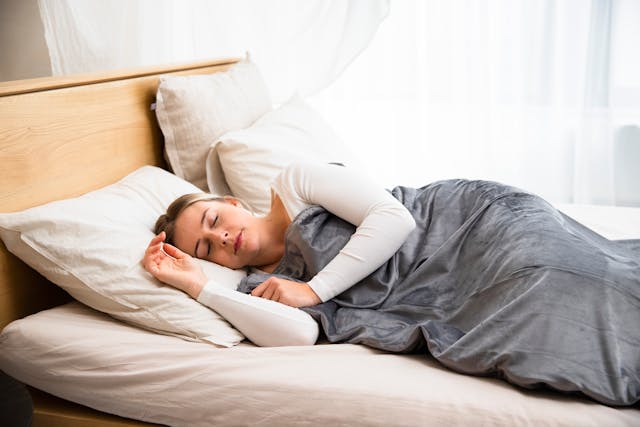
Breathing exercises for better sleep offer a natural, safe, and effective way to enhance sleep quality without relying on medication. 🌿 Begin with just 5 minutes before bedtime and gradually increase the duration. ⏳ For the best results, combine these breathing practices with a healthy bedtime routine, a calm sleeping environment 🕯️, and reduced screen time 📵. Remember, consistency is key 🔑 to achieving long-term natural sleep improvement and overall mental wellness. 🧠✨
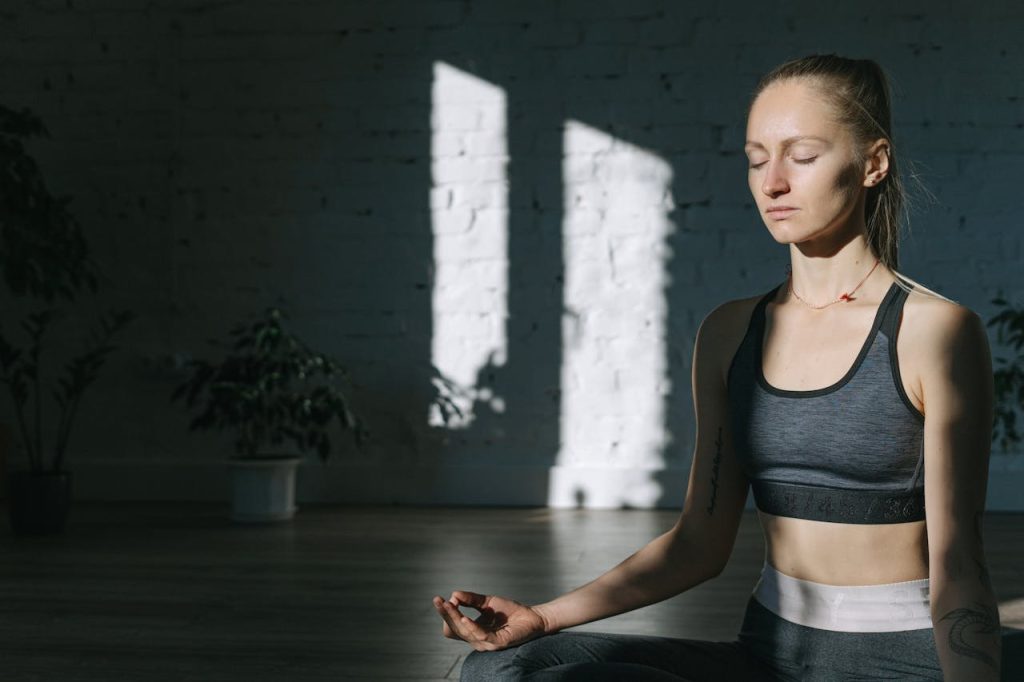
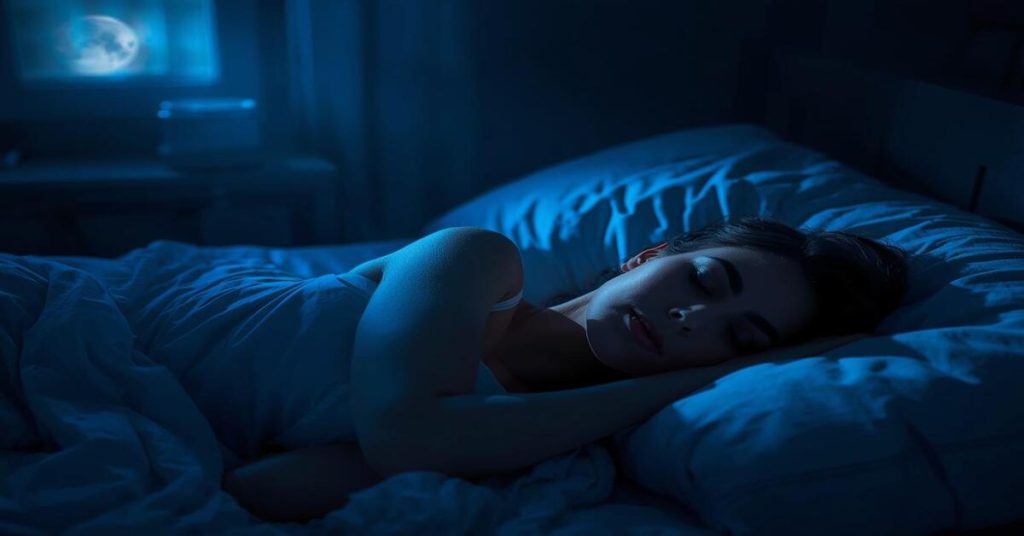
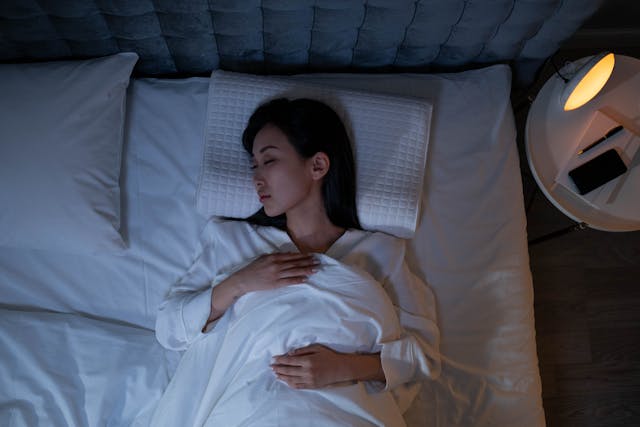
Hi there! Wishing you a great day ahead.
Let’s make your target achievable. I’m providing grants for educational pursuits, creative ideas, and personal situations. Write to me on WhatsApp +380990640376
i need backlinks